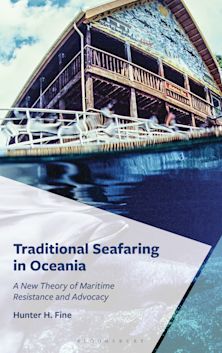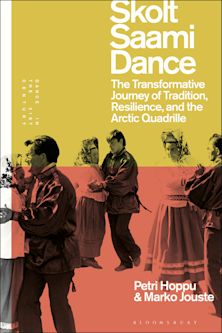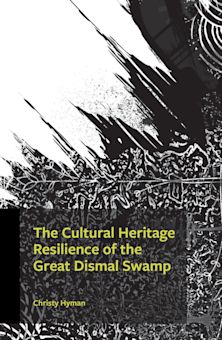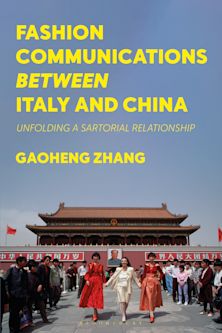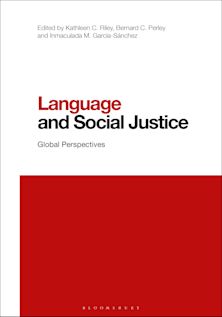- Home
- ACADEMIC
- Anthropology
- Cultural Anthropology
- The Heritage-scape
This product is usually dispatched within 2-4 weeks
- Delivery and returns info
-
Flat rate of $10.00 for shipping anywhere in Australia
You must sign in to add this item to your wishlist. Please sign in or create an account
Description
Tourism today is recognized as the largest and fastest-growing industry in the world, capable of producing positive social and economic transformations especially in developing countries. Yet for UNESCO, it works in conjunction with World Heritage sites for a far more ambitious goal: to produce "peace in the minds of men" by creating a new, global identity.
Anthropologist and former tour operator Michael Di Giovine draws on ethnographic fieldwork, close policy analysis of UNESCO's major documents, and professional experiences in Southeast Asia and Europe to provide a detailed examination of UNESCO's unusual effort to harness the phenomenon of globalization and the existence of cultural diversity for the purpose of creating "peace in the minds of men" through its World Heritage program. He convincingly argues that UNESCO's designations are not impotent political performances that lead to the commercialization of local monuments for a touristic superstructure, but instead the building blocks of a new world system, an imaginative re-ordering of the world that knows no geopolitical boundaries but exists in the individual "minds of men." Di Giovine terms this system the heritage-scape, a real social structure that extends unbridled across the globe, spreading its mantra of "unity in diversity."
Written for social scientists, heritage and tourism professionals, and the educated traveler, The Heritage-scape is an insightful, detailed, and expansive look at the politics and processes, histories and structures, and rituals and symbolisms of the interrelated phenomena of tourism, historic preservation, and UNESCO's World Heritage Program in Viet Nam, Cambodia, and across the world.
Table of Contents
Chapter 2 Chapter 1. Mediating World Heritage: Authenticity and Fields of Production in World Heritage
Chapter 3 Chapter 2. The Heritage-scape: UNESCO's Globalizing Endeavor
Chapter 4 Chapter 3. "Unity in Diversity": The Heritage-scape's Meta-Narrative Claim
Chapter 5 Chapter 4. Tourism: The Heritage-scape's Ritual Interaction
Chapter 6 Chapter 5. Converting Local Places into Universal Heritage
Chapter 7 Chapter 6. Politics and Personalities within the Heritage-scape: Narratives of Nature and Culture in Viet Nam
Chapter 8 Chapter 7. Mummification of Local Cultures: The Cases of Ha Long and Hoi An
Chapter 9 Chapter 8. Creating the Drama of the Destination: Managing, Interpreting, and Branding World Heritage Sites
Chapter 10 Chapter 9. Preserving the Past: Value and the Emotional Efficacy of World Heritage Sites
Chapter 11 Chapter 10. The Problematics of Preservation: Narrative and Practice in Angkor Archaeological Park
Chapter 12 Chapter 11. Raising Awareness, Re-Presenting the Heritage-scape: Fragmentary and Reproducible Re-Presentations
Chapter 13 Conclusion: The Future of the Heritage-scape
Product details
| Published | 16 Dec 2008 |
|---|---|
| Format | Paperback |
| Edition | 1st |
| Extent | 542 |
| ISBN | 9780739114353 |
| Imprint | Lexington Books |
| Dimensions | 231 x 153 mm |
| Publisher | Bloomsbury Publishing |
About the contributors
Reviews
-
The book opens challenging new opportunities to look at heritage and tourism markets. During the past few years studies in cultural anthropology, sociology and geography have emerged that focus on the global heritage system. Michael A. Di Giovine's refreshing insights into the heritage of humankind could enhance a new form of dialogue between conservation specialists, tour operators and anthropologists and give impetus to debates about different cultures and conservation schools. Such a debate could also be a contribution to intercultural dialogue.
International Journal of Heritage Studies
-
Di Giovine makes a contribution to academic and professional understandings about the role of administrative culture as it relates to the global level of world heritage and tourism. Di Giovine draws on his experience as tour operator and ethnographer to assess the production of meaning at World Heritage sites.
Curator: The Museum Journal
-
Di Giovine's book is about possibly the largest broker of cultural meaning and institutional producer of 'heritage,' one which is virtually unimpeachable in its self-perpetuating discourse of legitimacy supported by ample cultural capital. Di Giovine offers a necessary critique, a deconstruction of both the tropes used by UNESCO in production of mythohistorical, disembedded heritage and a detailed look at the fractures in its universalizing agenda. Ultimately, the 'heritage-scape' is an important contribution to the discussion on the production of narratives and material culture of 'modernity'-defined through a normative experience of the past and a strategic structuring of that experience.
Journal Of Tourism and Cultural Change
-
Di Giovine terms the "UNESCO's newly ordered social structure" of World Heritage sites as the heritage-scape....The book is a project of global ethnography to conceptualize the notion, processes, and position of World Heritage Sites in contemporary globalized world….The book offers some unique perspectives regarding the relationship of heritage with tourism due to the author's experience as tour operator that brings in insights from within the tourism industry. The multi-sited ethnographic accounts of world heritage sites in the Southeast Asia is well weaved with discussion of how various players including the hosts, the guests and the heritage agencies interact in a complex network.
Conservation South Asia
-
This book is a substantial monograph concerned with the interface between heritage and tourism. ... An innovative ethnography, …Di Giovine's work is successful in bringing to the fore the contingent, negotiated, and at times marginalising nature of World Heritage and mass tourism that happens in World Heritage sites in Southeast Asia. Of significance is his observation of the work of UNESCO beyond a designatory or list-making regime, and as a global ordering and placemaking process aimed at creating a peaceful transnational utopia. ... All in all, this is an exciting contribution to the field of heritage and tourism studies.
Journal Of Heritage Tourism
-
The Heritage-Scape is a "global ethnography" which provides a comprehensive and critical analysis of the complex relationship between UNESCO, World Heritage, and tourism. Described in the book as an anthropologist and former tour guide, Di Giovine draws upon extensive fieldwork, his participation in the tour industry, and close readings of UNESCO documents and texts in order to form his insightful coverage of this triangular relationship…. This is an important book. Di Giovine undoubtedly succeeds in this attempt to analyze UNESCO's World Heritage program, moving effortlessly between detailed case study illustrations of World Heritage-related processes at specific sites, explanation of the workings and declarations of UNESCO, and more generalized discussion of the processes and implications of this inherently globalizing endeavor. Indeed, this is an anthropological study of globalization par excellence. It is therefore an essential book for a broad readership, including academics, researchers, and students in the fields of anthropology of globalization, tourism studies, cultural studies and heritage, as well as practitioners in the area of heritage tourism. Di Giovine is to be applauded for this timely and comprehensive examination of the contemporary World Heritage system.
Journal of Anthropological Research












